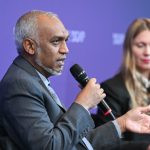
Ramadan shifts the rhythm of daily life, offering a unique opportunity to refine work habits while balancing fasting, faith, and professional responsibilities. For those navigating demanding careers, staying productive within shorter work hours requires a strategic approach. With thoughtful planning, the holy month can be a time of both professional and personal growth.
Maximising the Condensed Workday
With offices typically operating from 10:00 am to 3:00 pm, efficiency is key. Five hours leave little room for wasted time, making it essential to prioritise high-impact tasks early in the day. The morning hours, when mental clarity is at its peak, are ideal for handling critical work—think major reports, client meetings, or strategy sessions. Save lower-priority tasks, such as responding to routine emails or administrative work, for later in the day when energy wanes.
Effective delegation also becomes crucial. If you’re leading a team, ensure responsibilities are distributed efficiently so projects keep moving. A well-planned to-do list, ideally set the night before, can help streamline the morning rush and prevent decision fatigue.
Fueling Energy Levels for the Workday
Suhoor is more than just the pre-dawn meal; it sets the tone for the day’s performance. Heavy, fried foods may be tempting, but they lead to sluggishness and dehydration, making focus difficult. Instead, opt for hydrating choices like coconut water and water-rich fruits such as melons and oranges. Complex carbohydrates, such as oats, whole-grain roshi, or brown rice, provide a slow, steady release of energy, preventing the mid-morning slump. Protein sources like eggs, yoghurt, and nuts further sustain focus and curb hunger.
At iftar, breaking the fast with nutrient-dense foods is equally important. Rehydrating with water and consuming dates provides an immediate energy boost. Instead of indulging in excessive fried snacks, opt for lean proteins, fibre-rich vegetables, and balanced meals that won’t cause an energy crash later in the evening. Avoiding excessive caffeine after iftar can also help ensure quality sleep, making the next workday easier to tackle.
Aligning Work with Energy Levels
Fasting affects everyone differently, so knowing your personal energy patterns can be a game-changer. If you’re most alert before noon, use that time for tasks requiring deep concentration, such as brainstorming, problem-solving, or decision-making. As energy dips later in the day, shift to lower-energy activities like reviewing documents, updating spreadsheets, or catching up on emails.
For those with flexible work options, remote work can be a valuable tool. Working from home on days when energy is low allows for a more controlled environment, reducing distractions and conserving energy. If possible, schedule demanding tasks around your natural peaks and plan lighter work around prayer breaks, ensuring both productivity and spiritual commitment.
Integrating Faith and Work
Ramadan is not just about fasting; it is also a time of spiritual growth. Blocking out prayer times in your calendar ensures they don’t get sidelined by meetings or last-minute work requests. Structuring work around prayer can also provide natural mental breaks, helping to reset focus and maintain productivity throughout the day.
For those balancing a heavy workload, integrating light tasks—such as reviewing reports or listening to professional development podcasts—around prayer times can help manage responsibilities without overloading energy levels. Employers and managers can support this balance by fostering a workplace culture that accommodates prayer breaks and allows employees to work in a way that aligns with their spiritual needs.
Leveraging Technology for Efficiency
With shorter working hours, leveraging technology becomes even more critical. Setting calendar alerts helps keep meetings on track, while project management tools such as Trello, Asana, or Microsoft Teams streamline collaboration and ensure deadlines are met.
For tasks requiring deep focus, the Pomodoro technique—working in 25-minute focused intervals with short breaks—can help maintain sharpness without exhaustion. Automating repetitive tasks, such as scheduling emails or setting up workflow reminders, can also free up time for more meaningful work.
Overcoming the Mid-Ramadan Productivity Slump
By the second week of Ramadan, fatigue can start to set in, making motivation a challenge. To counteract this, introduce variety into your workflow—rotate tasks to keep things interesting, break up long stretches of work with short walks or mindfulness breaks, and celebrate small wins to maintain morale.
Team leaders can also play a role in sustaining motivation by checking in with employees, offering flexible deadlines where possible, and acknowledging their efforts. Even small gestures, such as words of encouragement or recognising achievements, can go a long way in keeping teams engaged.
Working Smarter, Not Harder
Ramadan is not about pushing harder; it’s about working smarter within the time available. Aligning workload with energy levels, leveraging technology, and maintaining a balanced approach to work and faith can ensure both productivity and well-being. As the month unfolds, embracing efficiency, self-discipline, and meaningful engagement can turn Ramadan into a period of both spiritual and professional growth.
Ramadan Mubarak—let’s make it a meaningful and productive one!












